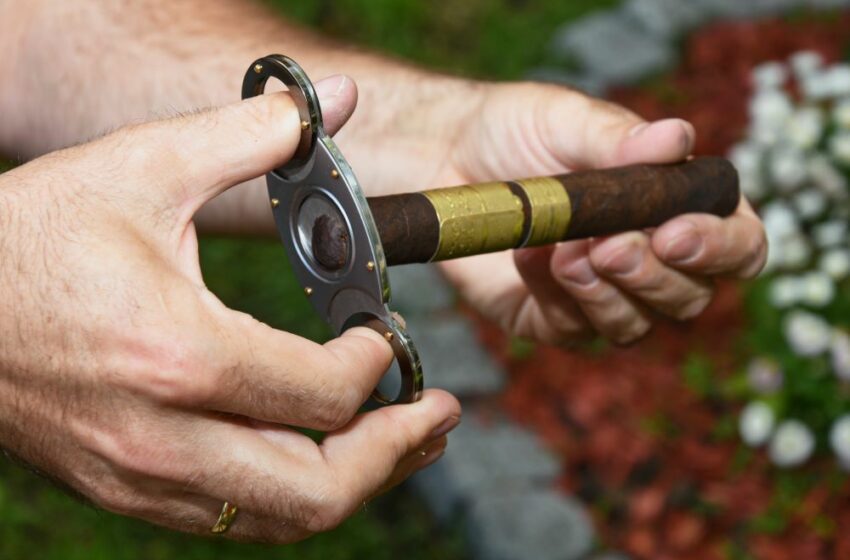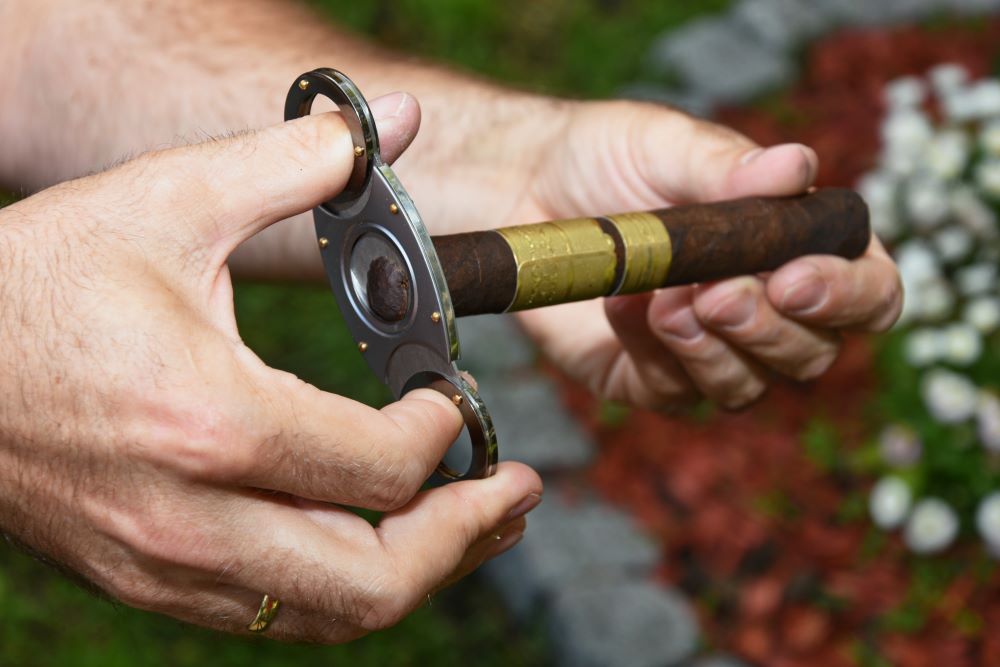Out of Proportion
- Also in TR Cigars Print Edition
- August 1, 2024
- 0
- 11 minutes read

A fine cigar is a basic product that is probably as “natural” as any consumer product can be. | Photo: Laurenx

The inclusion of fine cigars in the UK generational ban proposal makes no sense.
By George Gay
On May 22, the then U.K. prime minister, Rishi Sunak, announced that Parliament was to be dissolved on May 30 and a general election held on July 4.1 The announcement caught even political commentators by surprise because the election could have been held any time during 2024 or January 2025. Clearly, Sunak had decided that his policies were not going to improve the circumstances of most voters, at least in the short term.
There was certainly a note of desperation in the timing of the announcement because it meant Sunak was abandoning many of what had been referred to as his flagship policies, a move that led The Guardian newspaper to report that his legacy was looking “increasingly threadbare.”
But it’s an ill wind and, from the point of view of certain sections of the tobacco industry, the announcement came as a relief because it meant the tobacco and vapes bill, which was being pushed through Parliament with cross-party support, was holed below the waterline. The bill contained a provision for banning tobacco sales in the U.K. to anybody born from Jan. 1, 2009, onward, a so-called generational ban.
It seemed to say something about Sunak that he chose to scupper this policy while it had the wind in its sails, especially since, notwithstanding the timing of events, it could have been pushed through in the last days of Parliament, and given he had so emphasized his commitment to the health of the next generation. In fact, a BBC interviewer on May 24, apparently incredulous that the policy had been abandoned, asked a minister how this could have been the case, only to be told that Sunak had at least won the argument.
But this was not true because there had been no argument, if “argument” is used to mean a debate during which different ideas are put forward and resolved in a rational manner. Speaking at a Beat the Ban lunch held in London on May 21, Simon Clark, the director of the Freedom Organization for the Right to Enjoy Smoking Tobacco (Forest), had been scathing about the way the bill was being “steamrollered” through Parliament. Following a short public consultation before Christmas, he said, the government had announced that it would not consider any submissions from groups with links to the tobacco industry, which, for instance, included Forest and even retailers. “To the best of my knowledge, that has never happened before,” he added.
But, once again, this speaks to the makeup of Sunak, who apparently does not like to hear counter arguments and becomes tetchy when he does. So it is hardly surprising that, after the bill’s second reading, when it entered its committee stage, 16 of the 17 Members of Parliament appointed to the committee had voted for the bill, and the other was known to support it. And when it came to inviting people to give oral evidence to the committee, witnesses were almost exclusively supporters of the bill.
The August court ruling put the FDA in a position where it could regulate as tobacco products vaping articles that contain no tobacco but not premium cigars that contain only tobacco.
Misplaced Priorities
Sunak’s scuppering of the bill is unlikely to be the end of the matter because it had near-universal parliamentary approval. This means that a tobacco and vapes bill is likely to be refloated in some form, so it is worthwhile looking at some of the thinking behind this initiative. Any number of stories have been written about proposed generational tobacco bans, but here I would like to consider one aspect of it that I think makes no sense: the fact that the proposed U.K. ban, in encompassing all tobacco products, seems to lack any sense of proportion, something that can be demonstrated by citing the case of fine cigars.
At a time when, belatedly, serious health concerns are being raised in public about the consumption of alcohol, processed foods, caffeine and social media, and even about gambling and lack of sleep, why would the government’s attention be focused on something as benign as fine cigars, defined here as those cigars comprising only tobacco, water and vegetable-based gum?
As here defined, a fine cigar is a basic product that is probably as “natural” as any consumer product can be. Fine cigars are not implicated in concerns about flavors, and they cause no problems in relation to filters, batteries and all the other tobacco/nicotine product parts implicated in environmental issues. I would guess that only a tiny minority of the U.K. population smokes fine cigars, that the proportion of such smokers is relatively stable, that fine cigar consumption raises no ethnic or gender issues and that where these products are smoked is already restricted, meaning that certain aspects of concerns about population-level harm must be minimal.
Including an Outlier
To examine this issue a little closer, it is instructive to look across the Atlantic at what happened in relation to fine cigars in the U.S., where they are usually referred to as premium cigars. On August 9, 2023, in response to a lawsuit filed by the Cigar Association of America, the Cigar Rights of America (CRA) and the Premium Cigar Association, Judge Amit P. Mehta, sitting in the District Court for the District of Columbia, vacated the Food and Drug Administration’s 2016-imposed deeming regulations2 in so far that they applied to premium cigars. This meant that from that date, the FDA no longer had regulatory authority over premium cigars.
Ironically, this ruling put the FDA in a position where it could regulate as tobacco products vaping articles that contain no tobacco but not premium cigars that contain only tobacco.
Mehta apparently decided that the FDA’s decision to regulate premium cigars was arbitrary and capricious, a damning decision given the FDA claims always to act on scientific evidence. According to Drew Perraut, the CRA’s regulatory affairs expert, speaking during a post-court-decision video conference posted on the CRA’s website, the science the CRA provided and its comment on the deeming rule were instrumental in bringing about the court ruling. The CRA, he said, presented evidence to the FDA that there was no detectable evidence of youth usage of premium cigars, along with scientific evidence from the National Institutes of Health showing there was no appreciable rise in morbidity or mortality associated with smoking premium cigars. Judge Mehta found that the FDA had not considered those scientific issues and had not responded adequately.
It seems to me that even if the FDA does not fully accept the CRA’s evidence that smoking premium cigars does not significantly increase morbidity and mortality levels, that these products do not appeal to young people and that there is no evidence of their addictiveness, it must concede that premium cigars comprise an outlier in these areas. You can work that out on the back of an envelope.
The danger posed by fine cigar smoking is a planetary system away from that caused by cigarette smoking.
The Scent of Spite
But the FDA immediately appealed Mehta’s decision, so the question arises as to why. What is the problem here? Would it not have been more efficient not to prioritize premium cigars but spend the resources of the FDA on dealing with what seems to be an already burdensome workload created by more troublesome products? Would it not have been better to allow an industry that does little harm, creates pleasure and employs a lot of people relative to its size to get on with what it does without undue interference?
The pursuit of premium cigars looks like vindictiveness, as does the pursuit of fine cigars in the U.K. There must be a sense that the people who seek to regulate unduly and ultimately do away with premium/fine cigars cannot understand the pleasure that these products provide and for this “reason” want to get rid of them.
Sailing back across the Atlantic, one might wonder what the U.K. Parliament’s beef with fine cigars is. Surely, even given that many parliamentarians seem in recent times to have become culturally impaired to the point of boorishness, those in government must realize that the appeal of fine cigars is a world away from that of cigarettes. They must realize that the danger posed by fine cigar smoking is a planetary system away from that caused by cigarette smoking. In fact, the world of fine cigars is close to that of fine wines because the consumption of each is not about addiction or even habit but about pleasure, fulfilment and, often, enjoying the company of like-minded people.
A generational ban will have no immediate effect on sales of fine cigars in the U.K. because of the age profile of those who smoke them. But it will mean that, in the future, when those born after the end of 2008 are in their mid-thirties and want to consume a sophisticated product that does not addle their brains, make them fat or deprive them of sleep, they will have the devil of a job finding somebody who is willing to sell them fine cigars.
A ban on the sales of fine cigars makes no sense. And, for similar reasons, it makes no sense when it is applied to pipe tobacco and snus. It is to be hoped that if in the U.K. the prospect of a generational tobacco sales ban is raised again, it is considered carefully and not made the subject of sledgehammer policies.
1 The Conservative government led by Sunak was defeated at the July 4 election and replaced by a Labour government led by Prime Minister Sir Keir Starmer.
2 The FDA was granted regulatory authority over the manufacture, distribution and marketing of tobacco products under the Tobacco Control Act of 2009, but, initially, such authority was applied only to cigarettes, roll-your-own tobacco and smokeless tobacco. In 2014, as was its right, the FDA started the process of bringing other “tobacco” products under its authority. At first, urged by the premium cigar industry, it considered exempting premium cigars but later decided not to, and all other products were the subject of its 2016 “deeming” regulations.

